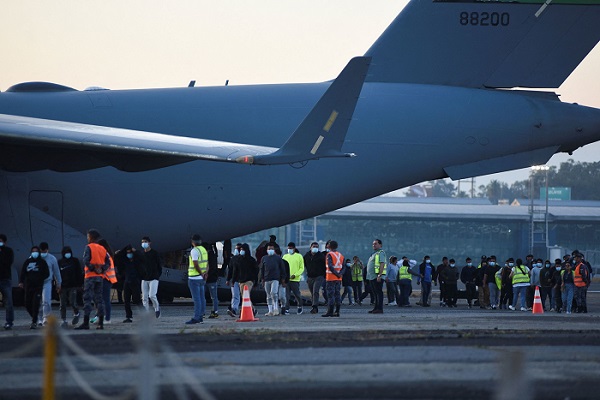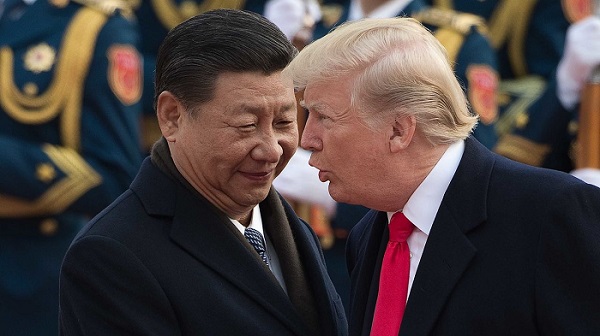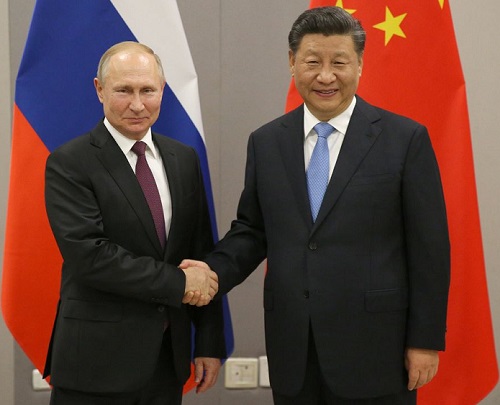by SAMBULO DLAMINI
MBABANE – NEIGHBOURS SOUTH Africa and Eswatini both claim neutrality in their international relations policies.
The deportation of hardened criminals by the United States suggests all this diplomacy is theoretical.
South Africa, the continent’s political and economic giant, almost entirely surrounds Eswatini geographically and is a big hitter in international affairs, merely Africa’s last absolute monarchy.
Albeit, the two nations share strong historical and cultural ties but there are occasional tensions between officials from both countries.
At some point, the Swazi kingdom was viewed as a traitor for helping apartheid era government. Eswatini claims Swazi territories formerly part of its kingdom.
Eswatini is seen as autocratic and South Africa lauds itself as a beacon of democracy but when South Africa suffers crisis, Eswatini at times claims its more powerful neighbour must model its democratic values around Eswatini.
Plus, Eswatini is the only African nation recognising Taiwan, contrary to its more powerful neighbour that is a fierce ally to the Chinese.
The emergence of Donald Trump at the White House this year is complicating matters.
His policies are seen as draconian against almost all of Southern Africa, except Eswatini.
A dramatic week saw Eswatini allay fears by South Africa after the latter raised concern over regional security threats amid the recent arrival of dangerous criminals deported by the United States.
In the latest episode of the differences between South Africa and the US government, South Africa appeared to question the decision by Eswatini to enter an arrangement with America in Trump’s so-called “third-country” deportations.
On Thursday, South Africa disclosed it had raised concern with the neighbouring country over the security situation, “with the potential of more criminals of this profile to follow.”
The Department of International Relations and Cooperation (DIRCO) expressed deep concern about “the profile of these individuals and the potential adverse impact on South Africa’s national security and immigration policy, given the geographical proximity between the two sisterly countries.”
Reports indicate that the five individuals were deported to Eswatini after attempts to send them to Laos, Cuba, Jamaica, Vietnam, and Yemen back to their own countries were rejected.
“DIRCO also noted that the countries of origin of these deportees are unlikely to receive them,” the DIRCO statement read.
Pholile Shakantu, Eswatini Minister of Foreign Affairs and International Cooperation has assured South Africa the presence of these individuals did not pose a regional security threat and the immigrants would have a safe and dignified return to their home countries.
She said the government had begun repatriation talks with the countries of the five convicted immigrants and in collaboration with the International Organization for Migration (IOM), Eswatini would provide logistical support and tailored reintegration assistance to ensure a sustainable transition for these individuals upon their return to their home countries.
It remains unclear how these talks will progress as the individuals’ own countries have rejected them.
Shakantu defended Eswatini’s foreign policy amid South Africa’s concerns.
The minister stated that Eswatini, in all its dealings with external parties, is guided by its foreign policy principle of “Having No Enemy – Anginasitsa” neutrality.
“This philosophy underpins our longstanding role as a sanctuary for displaced persons and a mediator in regional and international affairs,” she said.
“In line with this legacy, Eswatini is facilitating the safe and orderly repatriation of those individuals to their countries of origin while addressing the sensitivities surrounding their criminality.”
Shakantu reiterated the individuals were held under the highest security protocols in secure facilities, ensuring there is no cause for concern regarding potential escapes.
“Through His Majesty’s (King Mswati III’s) Correctional Services, we leverage internationally recognised rehabilitation programmes to support the reintegration of displaced persons.”
Rwanda and South Sudan have also entered agreements with the US to receive deported criminals.
– CAJ News




